The Top Stories of 2011

(For other year end coverage, see Gotham Gazette's Top Stories of 2010 and the big things that did not happen in New York in 2010.
Our 2010 pundits didn't exactly score direct hits as far as predictions go. Gary Babad, writer for NYC Public School Parents, came the closest with his satirical prediction for the Department of Education. "Klein Closes Department of Education, Fires Self" was the headline of his faux news release. The Department of Education still troops on but we did see Joel Klein step down as its head this year.
Senate Democrats including Sen. Kevin Parker and Senate spokesman Austin Shafran whiffed big with predictions for an on-time and balanced budget. No one predicted senate Democrats would find themselves preparing to be the minority party at the end of 2010. OK, maybe we did.
But Albany observers like Blair Horner and Doug Muzzio captured the kind of atmosphere that pervaded the capital this year.
"More chaos!" predicted Horner. Muzzio foresaw dysfunction with more of a wink and nod: "New York State legislature was found by the Brennan Center to be the most corrupt in the nation. What pushes New York over the top is the indictment by the U.S. Attorney of 17 current and former members of the State Assembly and 12 current or former senators in an 'ongoing' probe of legislative corruption," wrote Muzzio.
We did see a number of legislators in the grips of corruption charges, including Sens. Pedro Espada and Vincent Leibell.
As for the November elections, no one stuck their necks out and picked a horse; but they sure got the tone right.
Tom Robbins of the Village Voice accurately predicted NY Post columnist Fred Dicker's easy going relationship with the Cuomo administration. Writing, "Andrew Cuomo launches his campaign for governor and tells Post state editor Fred Dicker that he's going to be nothing like Spitzer. 'You and Eliot really got off on the wrong foot Fred and I’m not going to let that happen with us,' he vows,” wrote Robbins. He went on: "'No governor in his right mind wants both you and your boss Rupert as enemies. I learned that from my father.' In the following weeks, Dicker runs off a string of exclusive stories based on insider tips from the AG’s office and Cuomo campaign."
So what really happened? Dicker was nearly attacked by Republican candidate Carl Paladino and removed from his Christmas card list for his "close" relationship with Cuomo.
Azi Paybarah, who at the time wrote for the New York Observer, delivered some eerily prescient predictions. "Andrew Cuomo runs for governor, talking about the need to 'change the status quo' in Albany. David Paterson runs for governor, talking about the need to 'change the status quo' in Albany. Tom DiNapoli quietly runs for a full-term as comptroller."
Paybarah's sharpest prediction involved the future of print journalism: “Readers wonder what it was like to hold a newspaper in their hands and get ink on their fingertips," he predicted. He now works for WNYC, heading up the Empire blog.
So what do New York's prognosticators think will happen in 2011? Read on to find out.
Brian Lehrer, host of The Brian Lehrer Show on WNYC

The big story of the year is the painful and historic digesting of decades of debt by state and local governments. Richer localities around the state will fiercely resist consolidation for the same reasons they created separate towns in the first place. Disparities in education funding will grow, as a result around the state. New York City schools, while taking a significant hit, will fare better than most because they are not as dependent on property taxes for education funding.
Speculation ends about Mayor Bloomberg running for president, but he will help the group No Labels begin its real work of rating the new Congress and 2012 candidates in a new way, by civility and cross-aisle contact rather than liberal or conservative purity. The mayor continues to speak out to that end and to try to cultivate moderates into a movement -- a trick, since by definition they are not the activist believers.
Along those lines, now an elected senator, Kirsten Gillibrand emerges as a rising star with a blend of carefully chosen leadership roles in search of center-left consensus and constituent service, especially upstate.
The Dow returns to 13,000, helping keep NY a national leader in creating jobs, but the national unemployment rate remains above 9 percent, increasing the disparity between Wall Street and Main Street. Senior citizens continue to pay the price for the Fed's low interest policies with 1 percent savings accounts.
Mayor Bloomberg appoints Tina Brown the new Police Commissioner because of her success in magazine publishing.
People are talking a lot about change coming to Albany, but I am starting to think it is the same circus but with different clowns. I hope I am wrong. I plan on focusing on what is wrong with the New York State pension system. It has been a one-sided argument for too long, and I predict that I am going to change that. I'll tell you, the workers are not what is wrong with the system -- it is the employers who underfund the system. If I'm one thing, it is persuasive.
Councilmember Annabel Palma, chair of the General Welfare Committee

No cuts to social services -- that would be my prediction.
There will be a fight in the senate for gay marriage and it will fail to pass again. So my prediction is there will be no gay marriage in 2011.
Gary Axelbank, host of BronxTalk
In 2011, the bloom will come off the rose or, more accurately, the rose will come off the bloom as the truth will begin to emerge about the Bloomberg administration.
It will become increasingly clear that the “education mayor” has been a failure running the city’s public schools. The numbers of graduates needing remediation will make it obvious that the Klein/Black system of closing schools and alienating teachers and parents is not working. As a result, the notion of accountability that the mayor fought so hard to establish will come pointing back at him.
The end of year revelation about fraud in the CityTime scandal will be seen as a mere prelude as ongoing investigations into the $3 billion Croton filtration project show decisions Bloomberg's DEP has made were not in the best interest of New Yorkers, but only to benefit contractors.
The Bronx will win the Kingsbridge Armory battle, as there will be an undeniable plan presented in the late spring that will make the limited notion of a mall at the Armory look quaint.
Roberto Perez, host of The Perez Notes
In 2011, Andrew Cuomo quickly realizes that, "The more things change, the more they stay the same" in Albany.
Congressman Charles Rangel steps down and the party chooses Assemblyman Keith Wright to replace him, and everyone within the Manhattan Democratic Party acts as if they did not know it was coming.
Former Gov. David Paterson teams up with Mike Francesa on WFAN and attacks the New York Mets front office like the press attacked him, and states, "Now it’s my turn to dish it."
Cathie Black resigns as schools chancellor and joins the Cuomo administration, after realizing that there is more dysfunction within the New York City school system than there is in Albany.
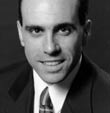
President Obama's prayers are answered: the tax deal with the Republican Party stimulates the economy and lowers unemployment. Sarah Palin announces that she is running for president and quickly emerges as the Republican front runner. President Obama immediately tells Robert Gibbs, “ In my prayers I asked GOD to let me pick my opponent. I asked for two choices; one was Sarah Palin, the other was Carl Paladino."
Councilmember Jimmy Oddo, minority leader of the City Council
In the greatest "swerve" since the Bobby Ewing dream sequence in the TV show Dallas, Mayor Mike Bloomberg and Councilman Lew Fidler hold a joint press conference announcing they have been golfing buddies for years and that all the harsh words between them have been for "sh*ts and giggles."
After spending six months in Albany, Senator and former Council Member Tony Avella will recant every bad thing he has uttered about Christine Quinn and will publicly declare the City Council "wasn't so bad."
There will be 478 stories about Bloomberg for President, and Vin Ignizio and I will not read any of them.
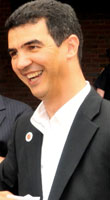
Attorney General Eric Schneiderman will help the Rev. Al Sharpton pick out the furnishings on his shiny new annex in the attorney general’s office in the city of Albany. They will agree upon saffron colored walls with cerulean drapes. Unfortunately, all this esprit de corps will be short lived when the attorney general will be forced to recuse himself in June after it is learned that the National Action Network surprisingly has failed to pay any taxes on the annex.
Councilmember Ydanis Rodriguez, chair of the Higher Education Committee
I hope the economy gets better, and I hope my district will get more resources... I hope we can go back and restore the $30 million cut [to the City University of New York]. I hope in 2011 we have a major discussion citywide of retention at community colleges. Graduation at community colleges is worse than high school.
Bettina Damiani, project director, Good Jobs New York
The Yankees, feeling guilty about the lavish tax breaks and subsidies bestowed upon them, will take the $148 million Cliff Lee turned down and use it to pay rent and taxes on its new stadium, rather than expect taxpayers to foot the bill.
A broad coalition of New Yorkers will send Wal-Mart officials and their plan for stores in the Big Apple back to Arkansas with its tail between its legs, allowing local industries the chance to live to fight another day.
Hoping to appeal to the average New Yorker, top government officials pledge to take public transit to a minimum wage job for a week. After calling it quits halfway through, they rush to pass the living wage bill currently before the council and restore budget cuts to public transit.

John Petro, urban affairs policy analyst, Drum Major Institute
In 2011, we will see a Democratic governor from one of the most liberal states in the country wage war on public sector unions. Instead of asking the state’s wealthiest residents to pay more in taxes in order to preserve vital services, lawmakers will blame budget deficits on state and city workers.
In the city, where the wealthiest one percent takes home 44 percent of all income, the gap between the rich and the poor will widen. Jobs will be created, but largely in low-paying sectors like retail and home health care. No one will point out the obvious: a $7.25 minimum wage is completely insufficient for New York City.
The city’s living wage and prevailing wage bills will be passed by the council, only to be vetoed by the mayor, who will absurdly argue that higher wages for low income New Yorkers would be bad for the economy.
The "bike lane wars" will reach the point of hysteria, but by the summer it will be obvious to even the naysayers that bicycling has become an integral part of the city’s transportation system.
And, finally, with the prospect of a transit workers’ strike on the horizon as 2011 draws to a close, the governor, legislature, business community and labor will come together to find a viable solution to the MTA's chronic budget problems, implement congestion pricing, and make bus transit free in the city.
Kathryn Wylde, President & CEO of the Partnership for New York City.

In Brooklyn, I predict that we will see dramatic construction progress on Atlantic Yards, the catalytic project that will accelerate everything good and great that is happening in the city’s most energized borough. The centerpiece of Atlantic Yards is the Barclays Center, a new high tech arena that by 2012 will be home to the Brooklyn Nets.
In 2011, the seeds of future economic growth that were planted over the last ten years -- the major development plans and dozens of rezoning actions that were shepherded through our complex public approval and financing processes -- will finally come to fruition and provide the city with a bridge from austerity into a new era of prosperity.

As 2011 ushers in, the following are a few predictions for the upcoming year. Number one: the amount of theft related to the CityTime scandal will exceed $100 million stolen from New York City taxpayers, and will be the largest fraud on record in the City’s history (I first sounded the alarm two years ago as Contracts Committee Chair).
Number two: within the 35th Council District we are members of a united community, and therefore will provide even safer, more nurturing and stimulating environments for children, both at home and within schools. We will help the least among us, and when we see something, we will always say something in an effort to protect neighbors and ourselves.
Number three: dancing will remain in my life, for exercise purposes and as an artistic outlet.
Dick Zigun, Artistic Director, Coney Island
Marty Markowitz will present Iggy Pop at his Seaside Concert Series and Norman Siegel will enjoy himself so much in the mosh pit that he drops his lawsuit against Marty's proposed amphitheater.

The Israeli Air Force will put on an air show on July 4th over Coney Island.
The city will buy the recently landmarked Shore Theater and install Ringling Brothers Barnum and Bailey Circus as the anchor tenant so that NYC doesn't lose the clowns and elephants while Madison Square Garden undergoes renovation
Luna Park's Zamperla will announce that it wants to rebuild the Steeplechase Pavilion of Fun next to the Parachute Jump.
Beyonce will crash the Mermaid Parade
Dick Zigun will propose an all blue fireworks show (oops I just did) and the Boardwalk 8 businesses will not disappear but instead move to Surf Avenue, replacing the illegal furniture stores (who will disappear), and create a new bar hopping nightclub district that hops.
Joyce Purnick, author of Mike Bloomberg, Money, Power, Politics (2009, PublicAffairs Books)
In the coming year pundits, especially on Fox News and in the New York Post, will predict with growing urgency that Mayor Mike Bloomberg will run for president, ignoring his denials, which he always pairs with denunciations of Washington and the two party system. As a result, nobody will believe his denials, and the rumors will continue to fly.…Oh, no, sorry. That was 2008.
Seth W. Pinsky, president, New York City Economic Development Corp.
In 2011, the city’s economy will continue to make a steady recovery. As we did in 2010, the city will outperform the rest of the country by focusing on innovation and building on the strengths of its economic diversification. New ideas, new business models and new products will be launched across the length and breadth of New York. The burgeoning tech scene will continue to create new startups, causing people around the globe to take note of the fact that today the New York metro area has more tech jobs than any other region in the country – including Silicon Valley. In addition to economic growth, the city will continue to make major investments in its infrastructure, with significant progress achieved on major projects throughout the city – from Coney Island to Hunter’s Point South, from Stapleton to Harlem to the South Bronx.
Carol Kellerman, president, Citizens Budget Commission
Since none of my predictions last year came to pass, perhaps it is safer to describe these as hopes:
The key stakeholders work together to agree on reform of the Medicaid program in New York to achieve multi-billion dollar, recurring savings and improvements in quality of care.
The state legislature and the governor agree on reforms to the state budget process recommended by Lt. Governor Ravitch, including GAAP balanced budgeting and a process periodically to review and keep the budget in balance throughout the year.
New York City’s public employee union leaders help save the city about a billion dollars by agreeing that their members (and retirees) should share the cost of their health insurance premiums.
The governor revitalizes the State Asset Maximization Commission, which launches several public-private partnerships to upgrade and adequately maintain vital elements of the state’s infrastructure.
The uniformed workers in New York City support legislation to create a new tier in their pension systems to eliminate the much criticized and often abused provisions that allow unjustified disability classifications, retirements at very early ages and pensions that are based on inflated overtime amounts.
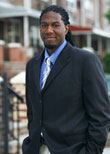
Councilmember Jumaane Williams
The Knicks are going to win the championship. The mayor is going to ask for a fourth term because only he can save the city.
Gene Russianoff, NYPIRG Straphangers Campaign
The MTA will keep its promises not to cut service or raise fares next year, despite the harsh economic times. A fare increase in 2011 would be the fourth hike in as many years. Close monitoring will be needed to make sure that MTA cost cutting moves don't hurt the system.
Gov. Andrew Cuomo and the state legislature will not raid tens of millions of dollars in dedicated transit funds, instead spending them only to benefit the lives of eight million subway, bus and commuter rail riders – unlike Gov. Paterson, who ripped off $160 million of the funds for non-transit purposes.
Mayor Bloomberg will sign council legislation that requires private employers of 50 or more to offer their workers tax-free transit benefits, which gives both businesses and employees tax breaks for using subways, buses and commuter rail.
The city will win rider, community and business support for Select Bus Service – faster and more reliable bus service – on the 34th Street corridor and on the B44 route across Brooklyn on Nostrand and Rogers Avenues.
To better prevent abuse of municipal parking placard privileges, the city will issue permits with microchips that allow easy verification by hand held computers.

Marty Markowitz, Janette Sadik-Khan and I will do a bike tour of Brooklyn, but we will be ticketed for riding on the sidewalk when we stop for a cannoli in Bensonhurst.
Kevin Baker, author of Dreamland, Paradise Alley
2011 will be the year the real depression begins in New York. Most people forget that the 1929 Wall Street Crash did not trigger an immediate economic meltdown. Instead, it just seemed like another volcanic exhalation at first; it took some time for the misery to flow outward. The appearance of the men selling apples on the street, the start of truly massive unemployment and mass evictions, did not begin until the following fall and winter. A similar situation will come to fruition this coming year, as continuing unemployment, the stretching of people’s debt-burdened household finances, and the end of various forms of stimulus undermine buying power.
Julie Menin, chairwoman, Community Board 1
In 2011, the 9/11 Memorial will open for the 10 year anniversary and quickly will become the most visited site in New York City, with over five million visitors visiting annually. Lower Manhattan will serve as a symbol to the world of a community that built itself back amidst terrible tragedy and devastation. The neighborhood, which also was the first capital of our country and the entry point for millions of immigrants to come to our shores, will also serve as a beacon of standing up against intolerance and standing tall for religious freedom, as Community Board 1 was the first group to support the [mosque and cultural center] and has solidly stood behind the right to build it. People will soon realize that, given that our country was founded by people who came here to escape religious persecution, the right of a fifth of the world's population to build a religious house of worship where they see fit is a key principle of American democracy.
Paul Steely White, executive director, Transportation Alternatives
At least one 2013 mayoral candidate will emerge with a plan to “restore the primacy of the automobile” and stop the “ridiculous' growth” of bicycling and walking. His supporters will include a broad coalition of oil companies, liposuction surgeons and squeegee men.
In a dramatic reversal, the New York City Council's transportation committee will spend more time reining in reckless driving than complaining about bike lanes. The MTA's wealthy Uncle Rocko will pass away, leaving the agency a budget-balancing inheritance, which Albany politicians promptly re-appropriate.
To help save transit, Marty Markowitz will back a new plan to toll the East River Bridges. The catch: SUVs are exempt and bicyclists are charged twice as much as drivers.
Terry O'Neill, criminal justice expert; founder, Constantine Institute
I expect Andrew Cuomo to appoint Albany County DA David Soares as commissioner of criminal justice services. David has shown himself to be very much in agreement with the priorities that Cuomo laid out in his urban agenda, including community policing, urban renewal and prison inmate re-entry programs. David will do a magnificent job of coordinating all the public safety agencies and putting them all on the governor's page.
Bill de Blasio, public advocate

Powerful special interests determined to take advantage of the Supreme Court’s Citizens United ruling will hit a stumbling block in their quest to funnel corporate money secretly into our elections: the proliferation of shadowy front groups like "Americans for Prosperity" and Former Governor George Pataki’s "Revere America" will completely exhaust the supply of innocuous and patriotic monikers. As a result, new groups have no choice but to brand themselves more honestly. Unsurprisingly, the first commercials sponsored by "Koch Brothers for a Toxic Planet" and "Laissez-Faire Coal Mines, LLC" backfire during the year’s special elections.
Once Again, a New Governor Vows to Clean Up Albany
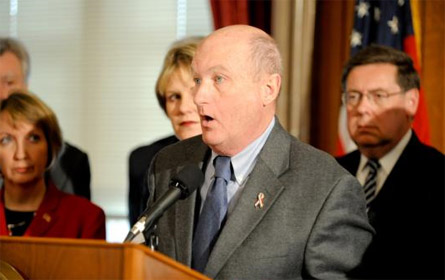
On Dec. 6, former Republican Sen. Vincent Leibell pleaded guilty to one count of obstructing justice and one count of failing to report taxable income on his federal tax returns from 2003 to 2006. Last week, Leibell suddenly announced he was retiring from the senate earlier than expected and told colleagues that he would not take office as Putnam County executive, a post he won in November.
Investigators say that, in 2000, Leibell started receiving kickbacks from an attorney who represented a non-profit that Leibell himself had started. After finding out that he was under investigation this April, Leibell was caught on a wire telling the attorney to lie to the investigators about their arrangement.
Leibell is the latest in a line of Albany politicians who federal investigators have caught illegally taking advantage of their position. His plea comes less than a month after state elections in which almost every candidate ran as a reformer, Now, with the election over, everyone is waiting with baited breath for Andrew Cuomo to be sworn in as governor and unveil his agenda for curtailing the corruption.
His Ethics Agenda
The first chapter of Cuomo’s policy book is "Clean Up Albany: Restoring Trust and Accountability," and it speaks of sweeping ethics reform. Cuomo supports setting low limits on campaign contributions from public contractors and lobbyists in an effort to limit pay to play. He wants to greatly lower legal campaign contribution limits as a whole and institute a voluntary public campaign finance system. He also supports a new independent oversight board for the legislature.
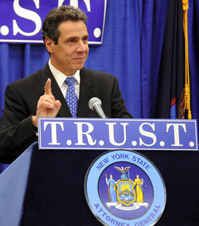
It is unclear, though, how Cuomo plans to implement the package. Cuomo has not indicated whether he has a litmus test for an ethics reform bill or whether he thinks he can get it all done in one bill.
"I think Cuomo will want to negotiate a tougher bill than the one the legislature had last year but I’m not sure where he is going to draw the line," said Blair Horner of the New York Public Interest Research Group.
Former Mayor Ed Koch said Cuomo's first year in office is a do or die year for the ethics and redistricting reforms. "It has to get done this (coming) year or it won’t get done," Koch insisted.
If Cuomo plans to get his reforms through in one major ethics bill, even legislators acknowledge it will take time and a lot of negotiating to arrive at legislation that could pass both houses.
"The question is will he be willing to spend the political capital to get the ethics bill done?" said Horner. "He is going to need a lot of capital to get that bill done but he will need enormous capital to finish the budget."
Lost in the Legislature?
The latest scandal has good government groups tearing out their hair in frustration and demanding the legislature do something.
"Someone make it stop!" wrote Horner. "Once again, a state elected official has pled guilty to charges of corruption. The guilty plea by state Sen. Vincent Leibell should reignite voter outrage about Albany. Gov. Paterson -- who made ethics reform central in his State of the State address and then dropped the issue like a bad habit -– should convene a special session to act on comprehensive ethics legislation."
In addition, Horner said the attorney general’s office, which Cuomo still occupies, needs to immediately conduct a review of non-profits that get state funding to make sure no other legislators are benefiting from funneling state money to organizations they control.
Despite such outrage, it remains extremely unlikely that the lame-duck legislature will move on ethics reform this year. What it could do after that could be open to question too.
The legislature passed a package last year that would have required lawmakers to reveal more of their outside income and established a new oversight board to review charges of corruption and conflicts of interest. It would not though have forced lawyer lawmakers like Assembly Speaker Sheldon Silver and then Senate Majority leader John Sampson to reveal their clients, and the members of the oversight board would not have been independently appointed.
Gov. David Paterson said the bill did not go far enough andvetoed it. Good government groups NYPIRG and Citizens Union (whose sister organization publishes Gotham Gazette) supported the legislation, saying that any improvement to the existing ethics laws would be a good step. Common Cause backed Paterson’s veto, saying the bill needed to do more.
Going It Alone
Cuomo could choose options that do not require the legislature to act. During the Democratic primary for attorney general, several candidates spoke of having the governor sign an executive order to give the attorney general's office wider power to investigate and prosecute corruption in Albany.
The majority of state legislators caught abusing their office were investigated and prosecuted by federal authorities. An executive order could change that and mean that the federal government would no longer be the only ones holding Albany politicians accountable.
One contender, Eric Dinallo, called on Paterson to immediately sign an executive order. "Call me crazy," he told City Hall, “but I think it’s unlikely that the Albany legislature is going to pass laws for their own investigation and prosecution.”
Paterson did not follow Dinallo's advise, and Cuomo does not seem in any hurry to do so either. He seems determined to give the legislature a shot at cleaning up their mess.
Shortly after the election, Cuomo was asked if he would consider signing an executive order to give Attorney General-elect Eric Schneiderman wide power to investigate corruption in Albany.
"I want to see what happens with the ethics reform with the legislature, but there are a number of options that can be pursued," Cuomo said. "The optimum is that we have an overall reform bill done, signed by the legislature, for comprehensive ethics reform."
"Attorney General-elect Schneiderman ran on a platform of rooting out public corruption, and looks forward to working with Gov-elect Cuomo on a comprehensive approach to this pressing problem," said Schneiderman’s spokesman.
Koch said he doesn’t question Cuomo’s strategy. "I won’t second guess him," said Koch. "He has said he will try to work with the legislature but that isn’t the only option."
But Koch certainly sees Silver as an impediment to Cuomo’s reform plans, whatever they are, in the form of Silver. "At least one of the current Democratic leaders makes $1 million a year from his firm. So what is it for? I know malpractice reform and anything the trial lawyers don’t want never makes it through the assembly," the former mayor said.
At the same time Koch said that he thinks Silver is coming around on the reforms he and Cuomo have proposed.
Cuomo has acknowledged there are things he can do on ethics without the legislature, He cited the Moreland Act, which the legislature created in 1907, and which allows the governor to create a commission with subpoena powers to investigate any part of state government. Past governors have used the act to launch investigations on issues ranging from nursing homes to corruption in local government. Silver called on former Gov. Eliot Spitzer to use the act to investigate Republican Senate Majority Leader Joe Bruno in 2007.
But creating such a commission could ruffle feathers and antagonize the legislature. "He has lots of promises in his books that he needs to fulfill and it all depends on where he decides to spend his capital," Horner said.
The good government group Reinvent Albany issued a report in last month entitled Executive Orders that offered examples of executive orders Cuomo could issue to begin reforming the state. On ethics, they encourage Cuomo to start in his own office -- the executive branch. The group called on Cuomo to issue an order that would require his top staffers to put their ethics disclosure forms online, allowing voters access to information about their investments and other connections. Other measures would require ethics training and limit executive staffers political contributions.
Preparing for a Fight?
Cuomo told the New York Times in a pre-election interview that he does not plan to have a contentious relationship with the legislature, but if history is any indication, major ethics reform won’t pass without a major struggle.
Meanwhile, things may have gotten a bit easier for Cuomo in the Senate, where it seems almost certain that Republicans will be in the majority. The senate Democrats spent their two years in the majority wracked by dysfunction and scandal. The Senate Republican conference is seen as a well-oiled machine and soon-to-be Majority Leader Dean Skelos has said that he is on the same page with Cuomo. "Cuomo and I are in synch," Skelos told The Post. "His issue is going to be getting Speaker Silver on board. What he’s indicated since the election is very much in line with the Republican Senate majority. He wants no taxes and to cut spending, and that’s our theme. We're supportive of his property-tax cap. We should work very well together."
Whether Skelos' support of Cuomo extends to sweeping ethics reform is yet to be seen. Calls to Cuomo’s and Skelos’ offices were not returned.
Albany Watches, Waits and Worries

It was quiet at the Citizen Action headquarters on Central Avenue in Albany Tuesday night. "We just have a few people out there closing up some polling places," a young woman said as she stacked campaign fliers. Staffers and volunteers had just finished phone-banking Arbor Hill and West Hill, the heavily minority section of Albany. Citizen Action wanted to make especially sure that voters who came out to support Obama in 2008 would make the trip to the polls again this time. The group's activists said they were pleasantly surprised that everyone they reached out to from their lists had already voted.
Perhaps though, they should not have been surprised. Probably no place in the state would be affected as much by yesterday's state elections than Albany. It is, of course, is a town that survives almost exclusively because of state jobs and is considered a bastion for unions. And it also is a place whose name has become almost synonymous with dysfunction and the seamy side of government.
Pre-Election Jitters
Citizen Action staffers were pushing especially hard to get support for State Sen. Eric Schneiderman, running for attorney general. Polls showed him in a dead heat with Republican Dan Donovan, and upstate supporters in Citizen Action worried that Schneiderman hadn’t reached enough people. The group is part of a large network of unions and activist groups that support Schneiderman and worked with him closely in the past.
On Monday, Andrew Cuomo made a last-minute stop in Albany with Schneiderman in a bid for votes. With polls looking close, Schneiderman was thought to need more of a Cuomo boost. Cuomo took the opportunity to defend the city of Albany, saying that Albany Mayor Jerry Jennings was tired of hearing "Albany" used as a derogatory term. Ironically, most of the crowd was made up of union members; both Cuomo and Paladino have used "union" as a dirty word during their campaigns, promising to cut labor contracts and fire state workers.
At Democratic headquarters Jennings, a confidant and die-hard supporter of Andrew Cuomo, strutted about waiting for the returns to come in. Through most of the election season, the slate of candidates in Albany, which is known for its Democratic machine politics, were thought to be safe. Then came a surge of Republican support and a misstep by Sen. Neil Breslin. Breslin had been pulled over and was administered a sobriety test which he passed. No breathalyzer was given. A Breslin spokesman denied Breslin had been drinking but later, in an interview with a Times Union reporter, Breslin said he had had "a couple" glasses of wine before driving home.
Some Democrats worried that they could now lose his seat as well as one or two Assembly seats. As election night began, Democrats seemed nervous.
The news came quickly that Cuomo and Sens. Kirsten Gillibrand and Charles Schumer were likely victorious. And soon after came word that all the Albany-based incumbents in the legislature also were winning. All remembered to thank the labor groups that were in charge of getting out the vote. "It is no mistake that all of the candidates thanked labor tonight," said Albany County Democratic Chair Dan McCoy.
The union members know all too well that Cuomo as well as Paladino are have been pledging to do battle with labor. Off the record, a number of legislators worried that David Paterson has been doing Cuomo’s "dirty work" by starting to lay off state workers this year. They fretted over Cuomo's stance that labor must make concessions and openly wondered whether Cuomo would run into a brick wall in trying to battle unions.
A few staffers and politicians considered whether Cuomo might like to see a Republican Senate, which could prove more amenable to his budget cuts. It is Assembly Speaker Sheldon Silver and his loyal Democratic majority that is expected to battle Cuomo over reductions in services. Some Assembly members were already sniping at Cuomo -- albeit off the record.
The Senate in the Balance
Meanwhile, in surrounding counties, Democratic challengers to long-term Republican Senate incumbents waited to see if they could pull off major upsets. Earlier in the year it seemed that Sen. Roy McDonald, who replaced former Sate Majority leader Joe Bruno, and multiple-decade incumbent Hugh Farley in Schenectady County were vulnerable. Democrats led by Sen. Liz Krueger touted the two female candidates challenging the Republican incumbents as part of the 16 Percent and Rising initiative. But neither woman was successful.
The Democrats grew more disappointed as the night wore on and the numbers crawled in. They fretted over the attorney general’s race and wondered whether Cuomo had done enough for Schneiderman; most of them griped that he he had abandoned DiNapoli, who he did not endorse.
The numbers kept creeping up for both Democrats. Schneiderman won. DiNapoli declared victory in the wee hours of the morning, but his opponent, Harry Wilson, issued a statement saying he planned to wait for absentee ballots and a possible re-canvassing.
As the night went on, the fate of the State Senate became less and less clear. As of this writing, the Senate was in a dead heat, 29-29, with four districts still being contested. The 7th, 37th, 40th and 60th districts were too close to call.
In the city, in a bit of an upset, Tony Avella defeated Republican Sen. Frank Padavan, and Democrat Joseph Addabo won a hotly contested race against Republican Anthony Como. Both Democrats and Republicans agree that the race between Democratic Sen. Suzi Oppenheimer and Republican Bob Cohen in Westchester is too close to call. The Senate could go to either party at this point -- or end up split 31-31. Republicans have declared that they are in charge of the Senate, while Democrats counter that they are. Whatever happens, it is likely that there will be recounts and legal challenges that could leave the fate of the Senate in the air for months.
Regardless of who controls the Senate, very little will have changed in New York. In the end, the "throw the bums out" rhetoric did not make much difference. Democrats who were in charge retain control of all the major state-wide offices, and they still enjoy a large majority in the Assembly. The question now is whether the Democrats will act any differently now, with a new governor, than they have in the past.
"Were you at all worried?" a constituent asked a Democratic legislator as they discussed the Tea Party movement as the victory party at the Polish American Citizens Club wound down. "This is Albany. I wasn’t worried for a second," the politician said, and chuckled.





